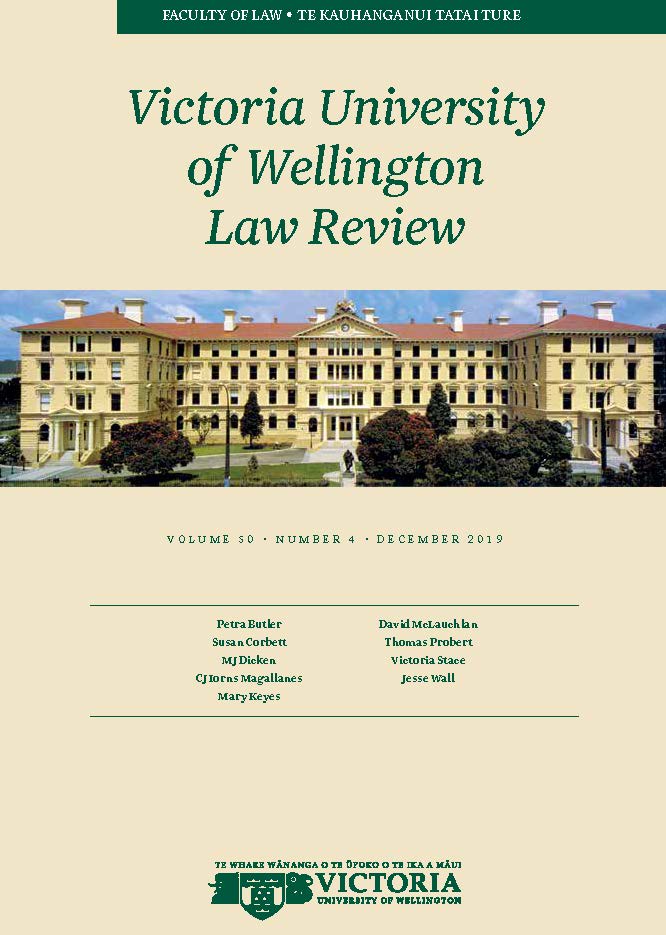Taking the Bundle of Rights Seriously
DOI:
https://doi.org/10.26686/vuwlr.v50i4.6308Abstract
After a painfully long set up, that attempts to ground three claims about property law (in general) and the nature of the beneficial interest (in particular), this article considers two arguments about the law of discretionary trusts. The first is the bundle of rights argument. This argument concerns the interpretation of "property" in legislative provisions. It suggests that where legislation is concerned with the structure of the social relationships that property institutions facilitate (rather that the juridical structure of rights and duties under property law), interpretations regarding what amounts to a "property" interest should also be "functional" (rather than "formalistic"). The second argument is the concept of the illusory trust. This argument concerns the standard package of constitutive elements required by trust law when a settlor uses the trust institution to order his or her affairs. Where an ostensible trust lacks a constitutive element, it can be said to be illusory. I consider here recent attempts to further delineate the concept of the illusory trust, that look to the "substance" or "reality" of the trust, and in doing so, shift our attention away from juridical form and onto social function. I will argue that only the former argument needs to be taken seriously.
Downloads
Downloads
Published
How to Cite
Issue
Section
License
Authors retain copyright in their work published in the Victoria University of Wellington Law Review.


